Coronavirus: Wales 'must work with UK nations on testing supplies'
- Published
- comments
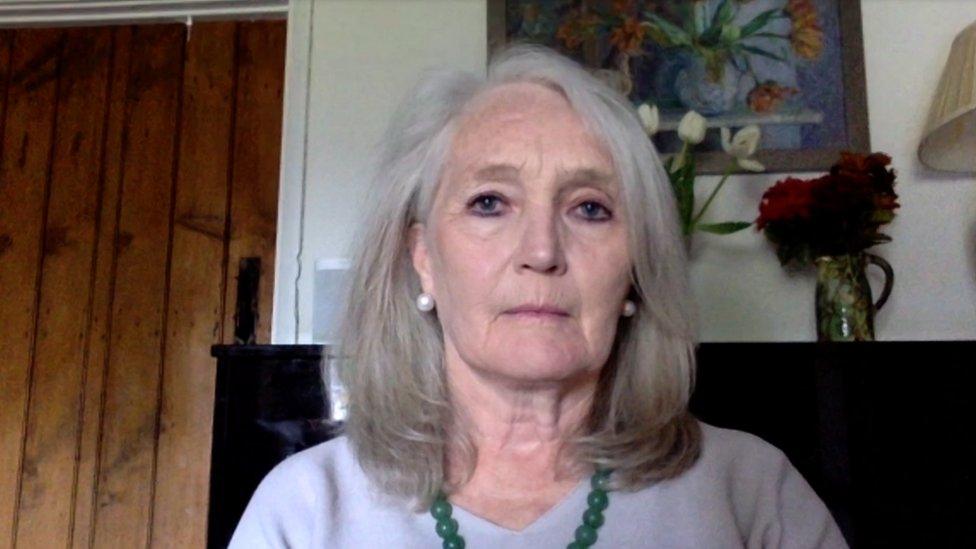
Prof Sian Griffiths OBE is also chair of Staffordshire University's Centre for Health and Development
Wales must work closely with other UK nations to secure enough resources to deal with coronavirus, an expert has said.
Prof Sian Griffiths, who helped lead Hong Kong's investigation into Sars, said UK nations needed to band together to compete in the global market for testing supplies.
The Welsh Government said it would now consider "greater integration".
A spokesman said it was working "closely" with the UK government.
Prof Griffiths, emeritus professor at the Chinese University of Hong Kong, said it would probably be "more sensible" for a four-nations approach to securing items such as reagents - substances used in chemical analysis - and swabs.
"Otherwise, you've got little itty bits going in against much larger groups, such as the US.
"So working together is probably a more effective way of increasing the availability of reagents - and then the vaccine when it's ready."
In March, the Welsh Government said a deal for 5,000 extra daily coronavirus tests to be delivered by pharmaceutic giant Roche had collapsed, though the Swiss firm denied there had been an agreement.
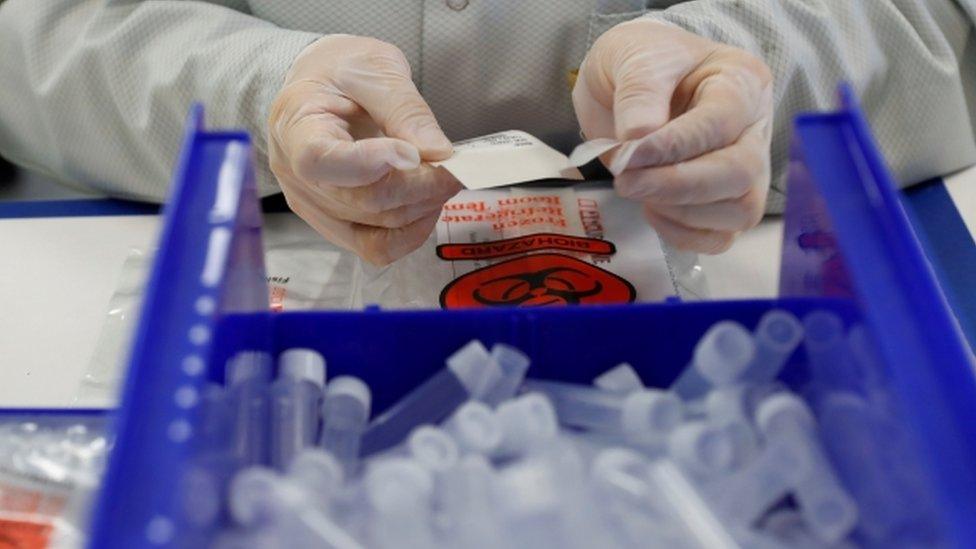
Public Health Wales (PHW) later confirmed Wales was instead receiving 19% of Roche's UK allocation, or about 900 tests per day.
Welsh ministers have subsequently been reluctant to set testing targets.
Speaking last week about the abandoned testing targets, First Minister Mark Drakeford implied efforts had been hampered by kit coming in from abroad.
Official data suggests testing for coronavirus per head of population in Wales has fallen behind that in England, Scotland and Northern Ireland.
As of 18 May, 16 people had been tested per 1,000 of the Welsh population, according to figures from PHW.
That is compared with about 27 per 1,000 of the population in the UK.
Prof Griffiths said she believed testing strategy in Wales and the rest of the UK was "being driven by the resources and availability".
She said the UK had been disadvantaged by its lack of a testing industry and that places in the far east, such as Hong Kong, Korea, Singapore and China, have all done many more tests because of their previous experience of Sars.
"They know that the way to get through this is to be able to identify cases, track their contacts, put them in isolation and break the chain of transmission," she added.
Last week, the Welsh Government published the outline of its test, track and trace strategy, which included an ambition to move testing capacity up to 10,000 by the end of the month.
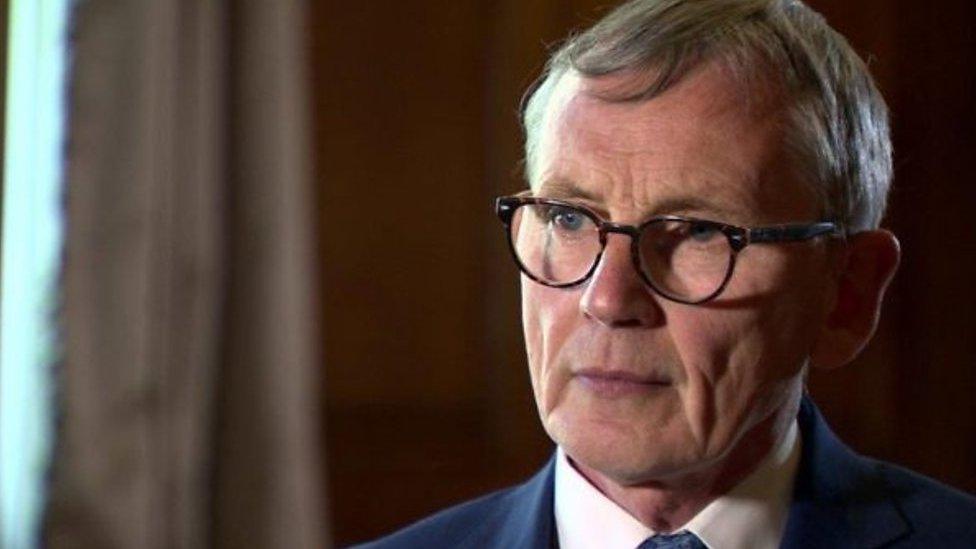
Prof Gabriel Scally is a member of the independent Sage group, set up to shadow the scientific advisory group to the UK government
That will be a "big challenge", according to Prof Gabriel Scally, president of the epidemiology and public health section at the Royal Society of Medicine.
He said Wales started down this path "months ago" and "we should be there by now really, or very close".
"It is certainly achievable, notwithstanding all the difficulties of getting reagents or buying testing kits, re-purposing machinery and maybe getting new machinery," he said.
However, Prof Scally said any increase in testing needed to be accompanied by contact tracing.
On Saturday, the Welsh Government announced it would be expanding testing to all care home residents and staff following criticism, while in England the Health Secretary Matt Hancock has pledged to test everyone at care homes by early June.
"My concern is more that we have a full system in place to test and trace every case," said Prof Scally.
"Without that, simply saying 'we're going to test everyone in a care home by June' is tokenistic.
"It may tell you the extent of infection within care homes, but what you then do with that information is more important."
As well as tests to find out if someone has coronavirus, countries are expected to soon need newly developed antibody tests, which can show if people have previously been infected.
Prof Griffiths said it was "good news" an antibody test was on the horizon, but Welsh authorities needed to ensure they could get enough of them.
"I don't know what negotiations are going on there, but that will be an important balance to this need to ramp up testing."

THE R NUMBER: What it means and why it matters
LOOK-UP TOOL: How many cases in your area?
EXERCISE: What are the guidelines on getting out?
RECOVERY: How long does it take to get better?
SCHOOLS: When will children be returning?

Tensions between the Welsh and UK governments have been apparent during the pandemic, particularly over the handling of the lockdown.
On Sunday, Labour leader Keir Starmer said different approaches across the four UK nations to tackling coronavirus were not going to "help us out of this crisis".
The Welsh Government said it would "now need to look at greater integration with UK-wide digital platforms and processing systems" to deliver its test, trace and track strategy.
A spokesman added: "We work closely with the UK government as part of the UK-wide response to this pandemic, including testing.
"Our test, trace, protect strategy outlines how we will increase testing capacity further by drawing on the UK-wide testing programme for the general public and critical workers."
The UK government has been asked to comment.
- Published4 May 2020
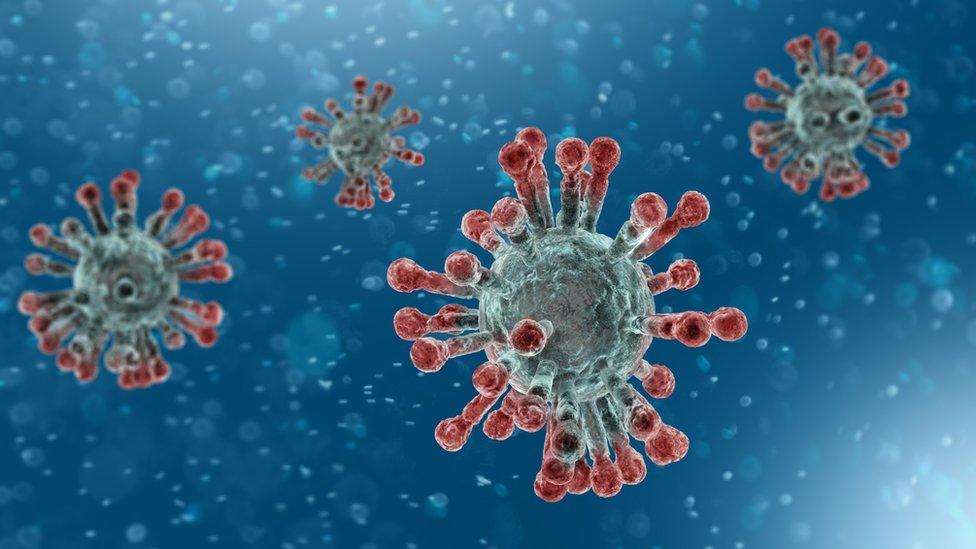
- Published9 May 2020
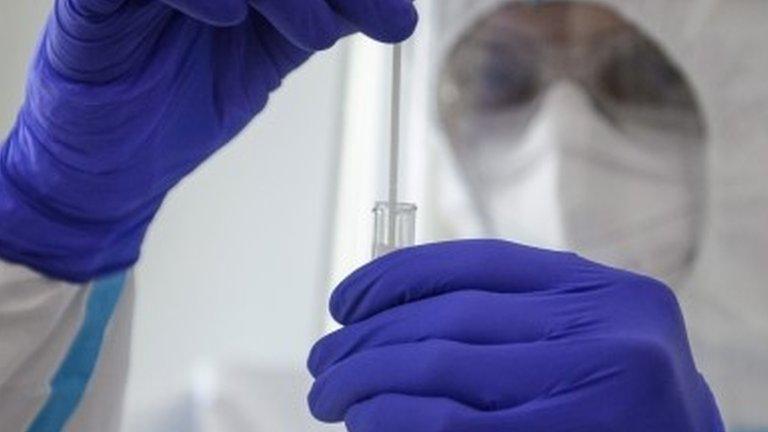
- Published17 May 2020
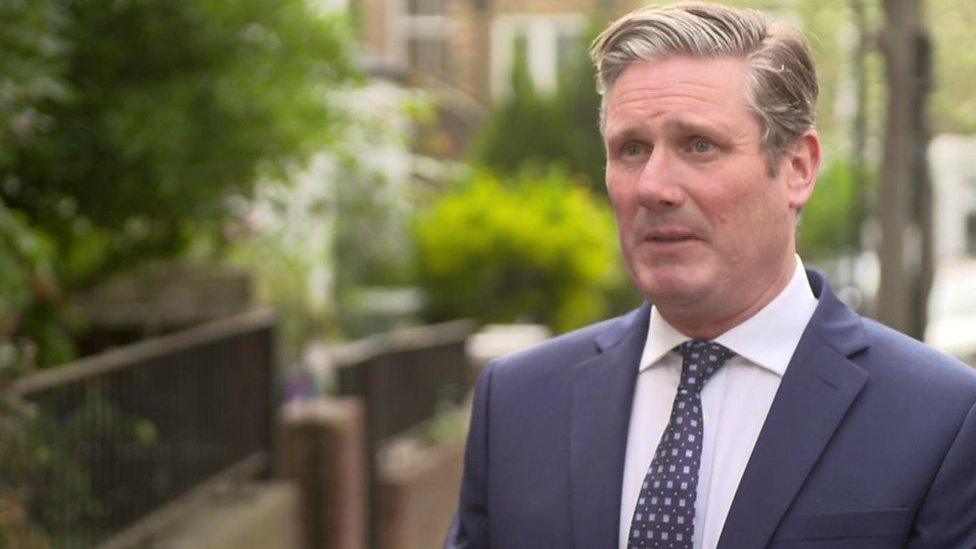
- Published16 May 2020
